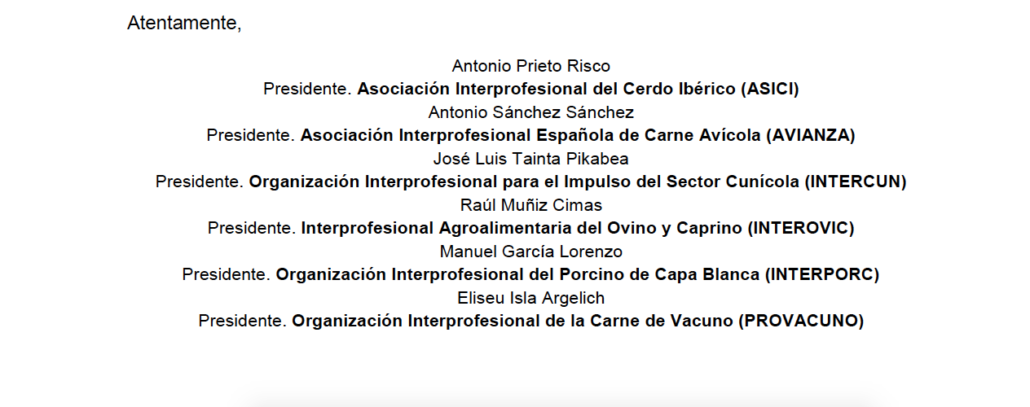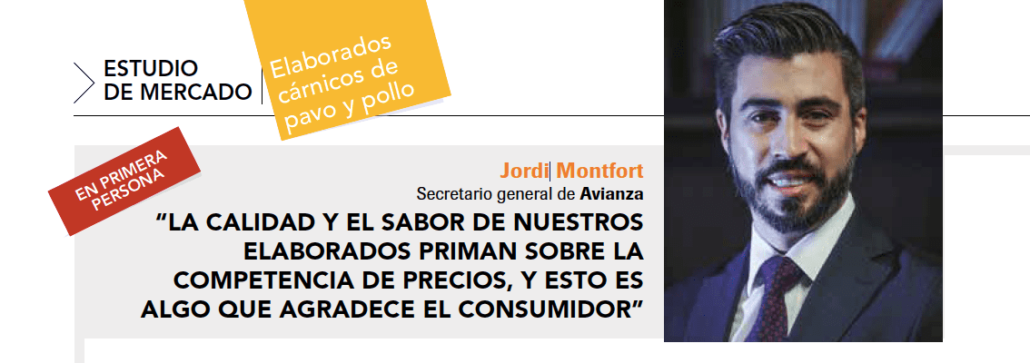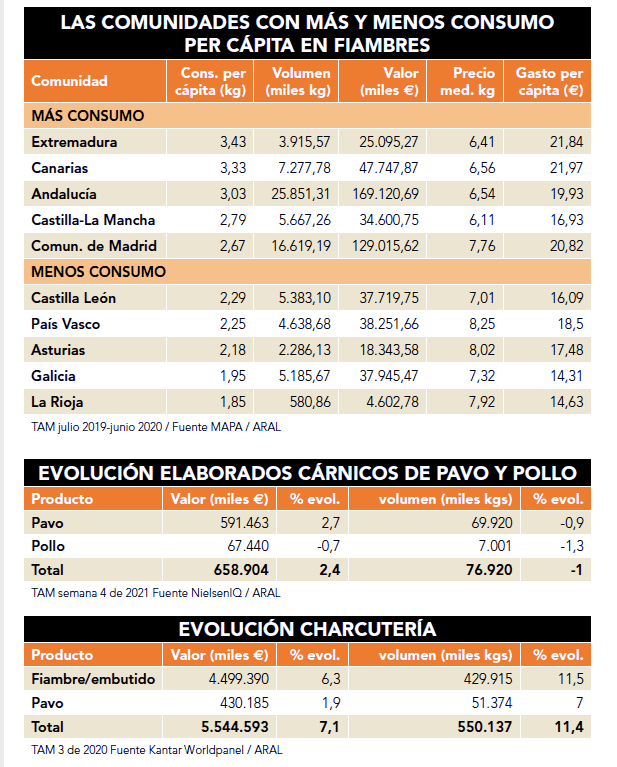Of the Do It Yourself to the "culinary critic", without giving up family traditions
What's behind a good roast chicken or a turkey salad? How do we integrate poultry meat into our diet? AVIANZA presents the x-ray of the most popular profiles among Spanish consumers during the summer: families, couples and singles
August 2021. Every year we produce in Spain more than 1.7 million tons of birds, to which are added imports from other countries. In the three summer months alone, more than 120 million copies are consumed, with roasted or fried chicken as the protagonist, along with grilled turkey fillets as a rising dish and the recovery of traditional recipes with native birds, such as quail.
Behind the figures, with an average of consumption per person of 14 kg of poultry meat per year, there are many stories hidden that revolve around the most demanded product in our country. Avianza (avianza.org), the Spanish Interprofessional Association of Poultry Meat, has carried out an online study on the profile of consumers in our country of this type of product, which reflects that choosing a good product, cooking it, plating it and consuming it is one of the greatest delights for anyone, regardless of their age, their gender or their marital status.
These are the main conclusions of the study:
Family consumers: from tradition to healthy experimentation
Many family celebrations in Spain are accompanied by a delicious gastronomic proposal with native poultry meats. Consumer preferences revolve around chicken and turkey meat for their versatility, price and success in the menu of the week. They also value the possibility of take advantage of all parts of the product and they are very receptive to the cooking advice they find on social networks.
Their likes: They revolve around barbecue or roast chicken, chicken or turkey salad, curry chicken, fried chicken, crispy fried or free-range chicken, among others, with a strong link also with home cooking recipes, especially if they are combined with regular ingredients in your shopping basket.
It is an environment where woman is the main buyer (72% vs 28% men), and has the widest age range, with 67% between 35 and 54 years old. Also notable is the 28% of buyers between 55-64 years old, older people who must prepare food for large groups.
Strong ties stand out intergenerational family, the cooperation in the preparation of dishes and meal planning, as well as a great love of popular recipes that are characterized by their flavor and that provide a solution to most of the diners' needs.
Its geographical location is broader than other groups, with presence in large and small cities, towns and medium-sized municipalities.
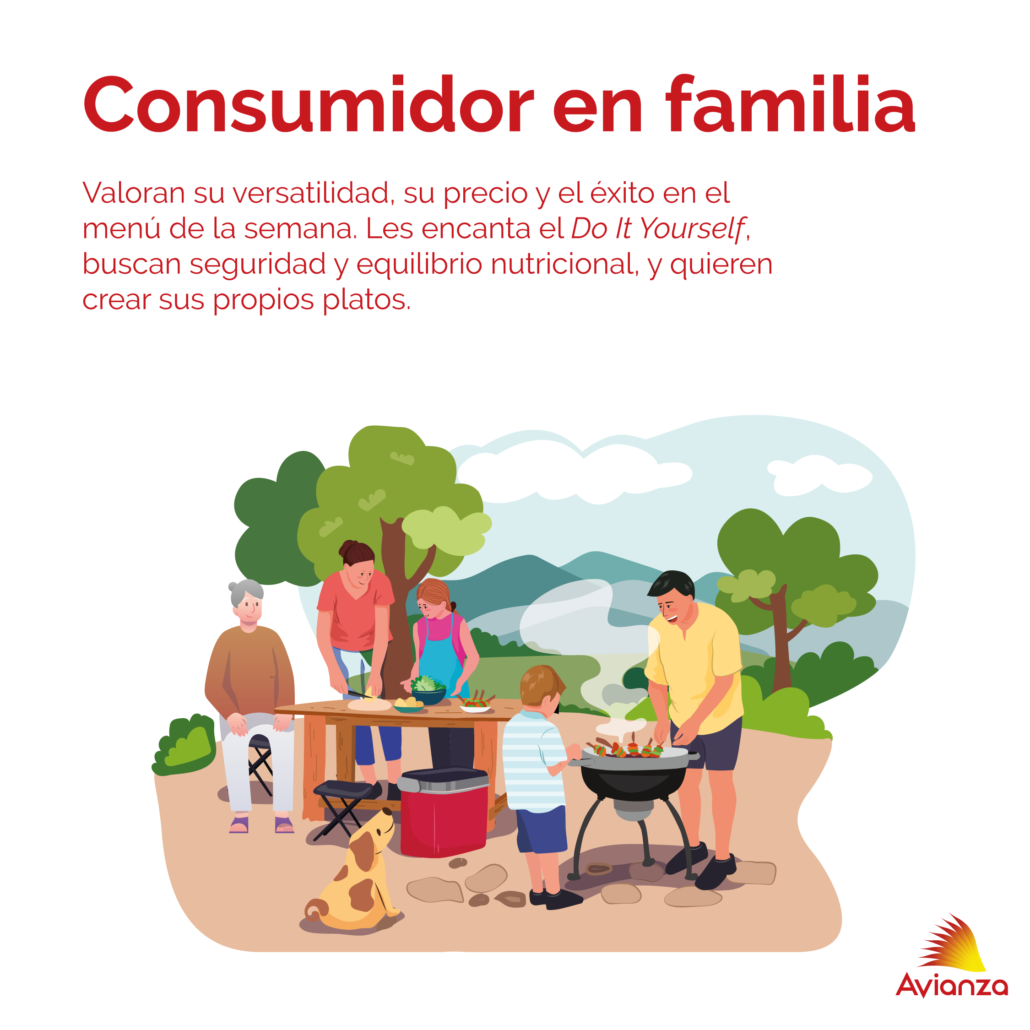
Within families, Avianza has also analyzed the profile of parents with small children, with a majority age range between 27 and 44 years, also with a predominance of women (80% vs 20% men) as a purchase decision maker. In this case, we are talking about a woman who calls herself “modern", curious, who likes to be informed, loves the properties of poultry meat and is not afraid to leave his comfort zone to find technical and specialized information, especially with the aim of offering healthy foods to their young children.
They look for security and balance in the diet, beyond the product itself. Nutritional balance and also between what is fun or attractive for children with recommendations that may not be as much to their liking, but essential for their growth. Poultry meat is therefore a creative way to, “with patience”, respond to nutritional challenges. The increase in turkey in their menu is appreciated, especially grilled or cold cuts.
These types of fathers and mothers love DIY (Do It Yourself), with its own style, without anachronisms and inclusive. They are not mothers or fathers who want to compete, they love diversity, they are multifaceted, they know it and practice it, and they are capable of doing “magic with time.”
These types of families want experience new things, create new dishes with chicken or turkey, and invite the little ones to be part of the experience.
As buyers, they don't like bargains, they distrust hoaxes and slogans, and they don't accept being told what to do, buy or take. It encourages them to draw their own conclusion. Its mission statement is: “I'm not a target and neither is my family, you don't know me”.
Coupled consumers: “gastronomy tastes twice as good with who you love”
Named “gourmet" either "food lovers” for their interests, they are defined as foodies. They are passionate about discovering new proposals, especially if they bear the seal healthy. His ideal dish during romantic moments usually revolves around poultry meat (chicken, turkey or native species such as quail) as it allows him to combine “good eating” with well-being. After all, there is nothing worse than heavy digestion after a dinner for two.
In this type of buyer profile the woman shows a lower age ranger, from 25 years old, while it rises to 35 years for them. However, increasingly we find couples without children at older ages, up to 55 years old. Highlights the group of urbanites living in big cities, with higher education, who like to travel, learn about other cultures, and enjoy a medium/high purchasing power. Concerned about ecology and climate change, innovative in their diet, and with interest in the origin of the product you consume. The Spanish poultry meat seal is a guarantee for them.
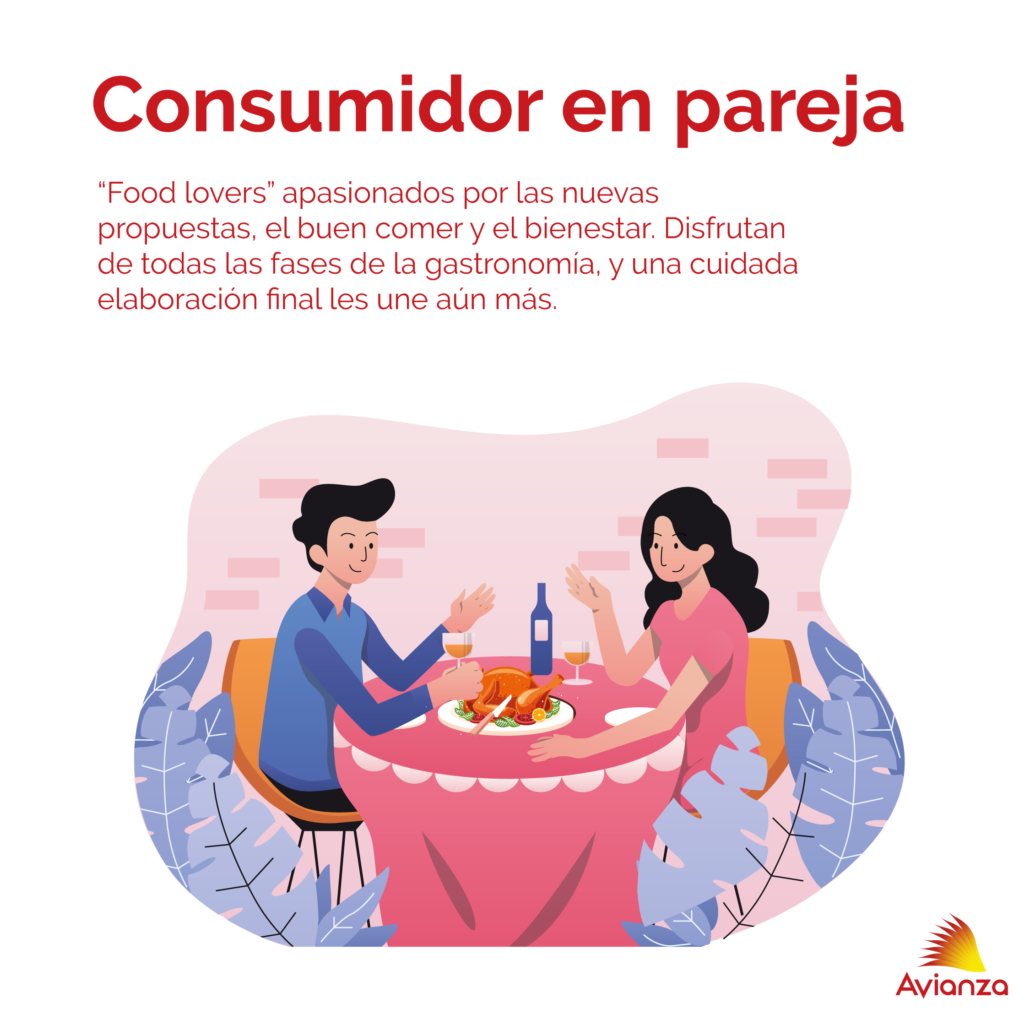
It is the most “masculinized” profile of the four analyzed by the Avianza study, which does not mean that it is the majority, but it does reveal that Man assumes a more leading role in the decision to purchase poultry meat. It's about a man fan of good eat, knowledgeable about the product and comfortable in kitchens. Directly links the kitchen with the well-being in all its phases: from the preparation of the menu for his week (what do I feel like), the design of the route through establishments to find the product he is looking for and has in mind, the storage at home (he is an expert in redistributing the freezer), he cares about the preparations (marinades, macerates), and respect and enjoy the rhythms required to obtain the best result.
For this type of consumers kitchen time is personal time, and they do not hesitate to dedicate it for themselves and their partners. That is why they enjoy the plating, details and accompaniments to the main product. “Gastronomy tastes twice as good with your partner”, they declare. Seeing your partner enjoy such careful final preparation is part of what unites you. They view cooking as culture, even as “live art.” Are traditional consumers and their modernized versions, but without altering values or principles. Finally, they are considered gourmet fans on social networks and specialized online sites. Recipes with less common bird species, such as capon, pularda, turkey, or quail, are gaining ground.
“Single” Consumer: delivery yes, but without giving up quality food
The consumer segment that lives alone has been associated with interests in low-nutrition takeout food, but the consumption of poultry meat is a way to break that concept. The proliferation of delivery or home delivery options makes it easier to incorporate poultry dishes into your menu., which also resist travel better and the time it takes to arrive at your home.
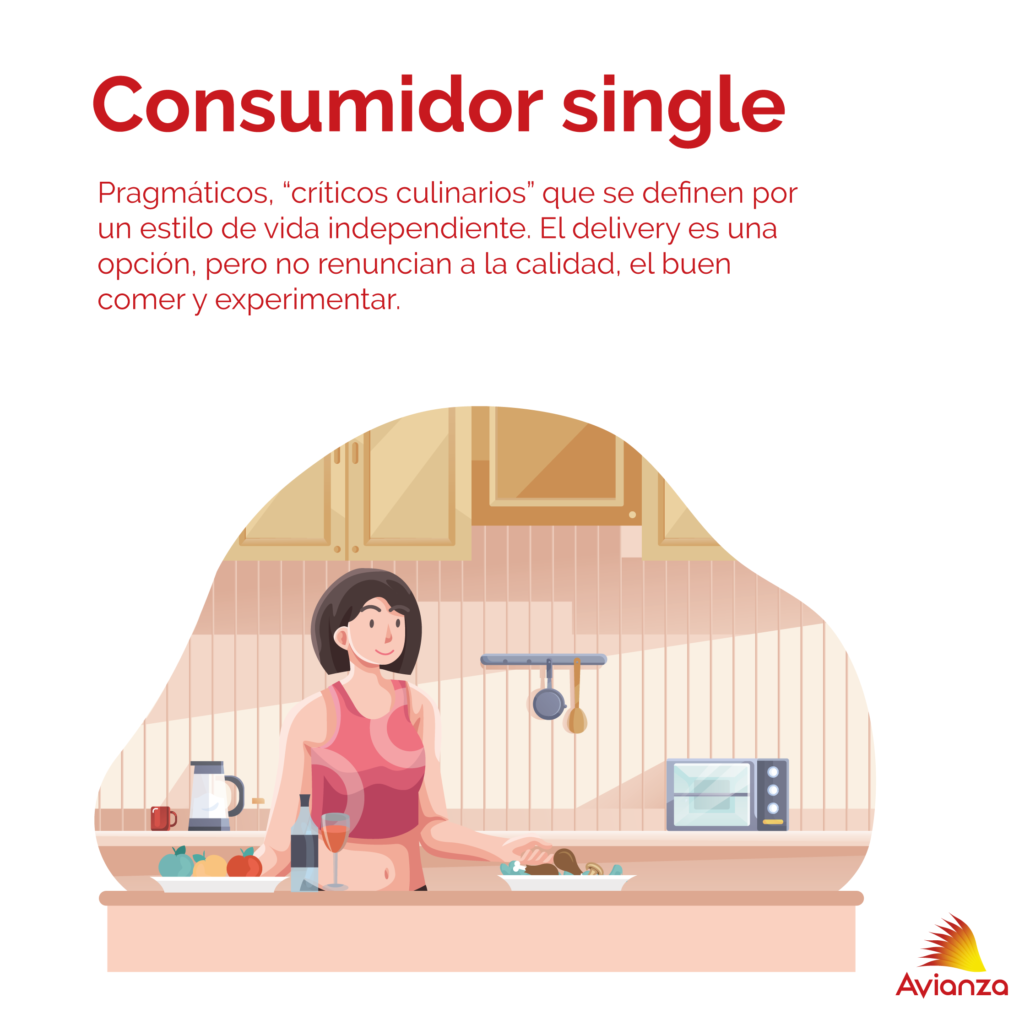
Singles, students, people who telework at home, we are not only talking about young people, but about older people with a situation that has become separated or divorced. The distribution by sex is equal (50%), with women between 25 and 40 years old, and men between 30 and 45, which also reflects a later departure from home for this second segment.
The “millennial chicken” consumer is “appadicted, social, critical and free-thinking.””. They attach great importance to being close to reality, and dedicate time to home management, nutrition or personal well-being. They are pragmatic, pure practicality.
They resort to the service of delivery because you don't have time or desire to cook It is not incompatible with good eating and being satisfied, beyond the usual proposals. They want to try new restaurants and play at being culinary critics.
Their visit to the supermarket is aimed at buying a cut (tray of meat) and the appropriate ingredients, because they also feel prepared to cook and produce an even better version. They have no budget limitation, but they want to check which is the best option vs delivery. They distrust sales strategies based on purely commercial campaigns, although they are encouraged to participate in contests if they see the bases clear and it represents a challenge.
They love their ability to self-manage, take advantage of their “single” situation and not miss satisfying opportunities (cinema, travel, spa, adventure,…) for tomorrow. Always accompanied by a good gastronomic proposal.

